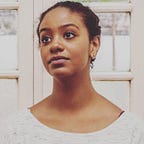My Thoughts on Goodbye Julia
Spoiler alert: If you haven’t watched the film, I recommend that you do not read the article.
October 25th 2023 was the first screening of the Sudanese film Goodbye Julia in the cinemas in Cairo. The tickets at Zawya Cinema in Dowen Towen Cairo were sold out. With almost 1 million Sudanese refugees who fled the war in Sudan and the already high number of South Sudanese who are refugees in Egypt, resulted in a huge Sudanese crowd.
In general, the film discusses the turbulent relationship between North and South Sudan, racism, South Sudan’s separation in 2011 and all the events that led to that point with the events starting in July 2005 with the death of Dr. John Garang and the occurrences that took place afterwards.
How I relate to the story
On that date, I was 6 years old, and I was in my first year of school, despite my young age I clearly remember the details of the day, I remember how my uncle picked us up from school on his pick up, and how we had to stay at our relative’s house until later in the day when we finally were able to go back home, and I remember that school was off for a while following that day. But because I was so young I don’t recall picking any cues on the general climate and the feelings of the people around me concerning the death of Dr. John Garang.
In 2011 I was 13 years old, in my second year of high school, I clearly remember the conference on the TV in which the results of the voting were announced, I remember the news presenter saying something along the lines of “the South Sudanese vote for separation, I had little knowledge of the second civil war and little knowledge on racism in general.
Because I experienced those situations on the other end of the spectrum with almost no effect on me and my life, thus, getting glimpses of what was happening on the other end made the film extremely uncomfortable for me, it was very triggering challenging and provocative.
About the charachtars
I think Muna’s character was smartly written, Muna is me, my sister, my friend, my neighbour and all the females in my life, she represents all the women from the middle class who are educated and have a good level of exposure but not necessarily awakened, what is more, interesting is Akram _Muna’s husband_ he in contrast to Muna is completely aware of his stance as a racist and who is at peace with it.
On the other hand, Julia is interesting to me because as Majour tells her she’s bint al-Khartoum, she was raised in Khartoum, has never been to South Sudan and speaks Arabic fluently, Julia is like Many South Sudanese I know and worked in our house, a single mom because her husband was either killed or tried to migrate and they did not hear back from him, working to rais her children while at the same time struggling to continue her education. And that is what is fascinating about the characters, they portray the average people.
Favourite scenes
I recall seeing the wood bath rituals (dukhan) on the media once before in the Tajooj and Al-Muhalaq film by Jaad Allah Jubara, and now in Goodbye Julia they beautifully recreated the scene.
The female practices in central Sudan are very secretive and private, they are practised behind closed doors, with exclusive invitations and no documentation, Zar, bridal dance, or beauty rituals such as dukhan, dilka and other practices.
We saw the Sudanese zar beautifully portrayed in cinema a couple of years ago in the You Will Die at 20 film by Amjad Abu Alela who is the producer of the Goodbye Julia besides Alomda.
There were other beautiful scenes, like when Muna entered the church and she and Julia were standing in front of the cross, also when the South Sudanese were crossing the borders between Sudan and South Sudan after the separation, and the closing scene when Danie was riding in the thatcher carrying a weapon.
Generally speaking, the film is visually rich and full of interesting and visually beautiful frames.
Music
The music throughout the film was representative of mostly the North Sudan culture with some infusion of South Sudanese dances and beats, it felt authentic, featuring Al-Atbarawi and the cover of Jaree wana Jaro for Said Khalifa as well as aghanee al banat. The closing track a duet between Eiman (Muna) and Nile (Tareq) accompanied by Mazin Hamid in the background on violin is also brilliant.
Final thoughts
I think what makes the film very touching is how relatable it is, how close we feel to the characters, music, locations, conversations and everything in between. The timing also makes it extra special, with the separation of South Sudan being an everlasting wound in our hearts and now that Sudan is being torn apart by war and all of us are watching it away from our beloved Khartoum makes it extra nostalgic.
Overall the film is enjoyable, funny, sad, real and authentic, I laughed, cried, sang along and was on the edge of my seat the entire time. I confirm that it is worth the hype.
